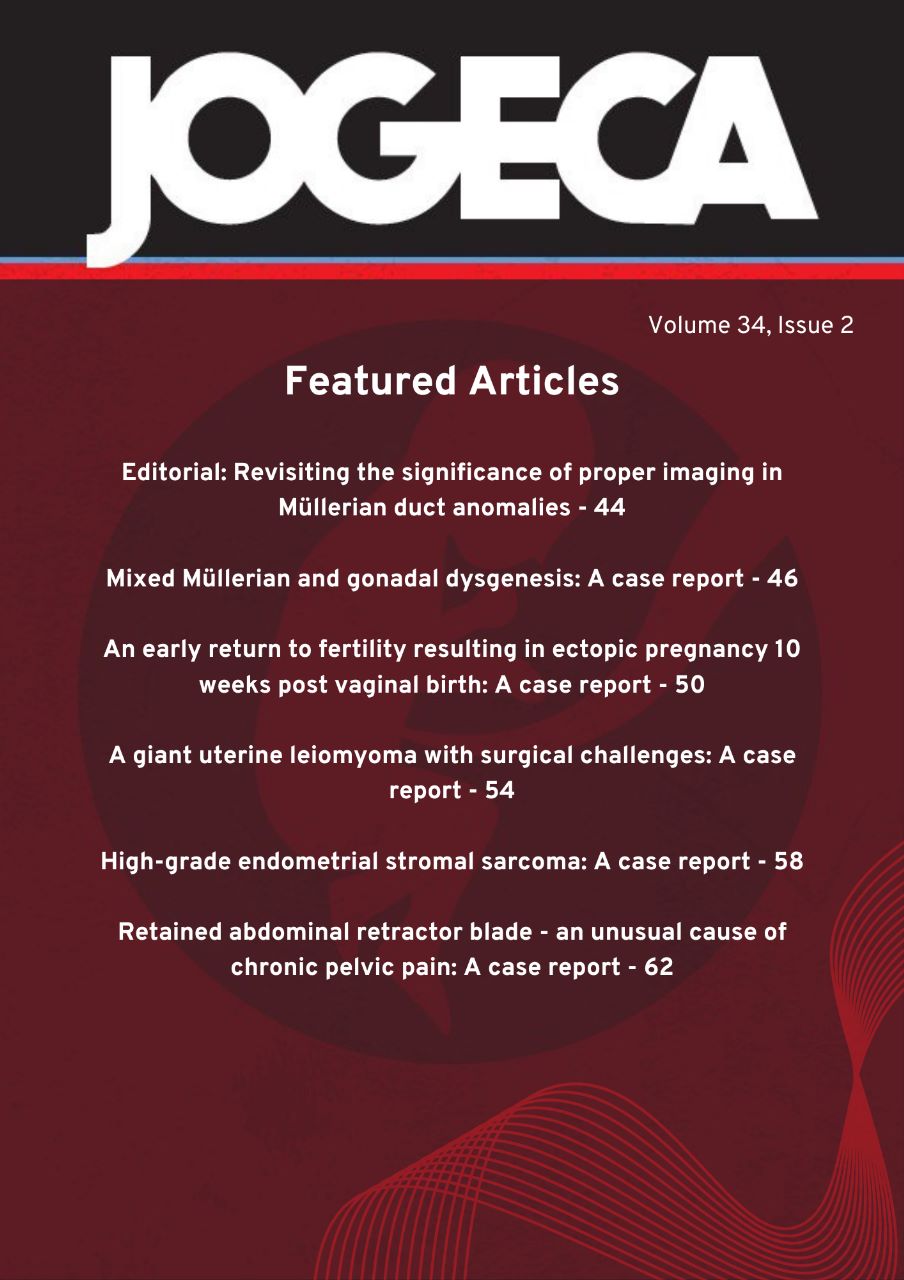Prevalence of Rhesus D negativity and barriers to immuno- prophylaxis among obstetric patients in Kitengela Sub- county Hospital: A cross-sectional study
DOI:
https://doi.org/10.59692/jogeca.v36i2.416Keywords:
ABO, anti-D, immunoprophylaxis, Kitengela, Rhesus alloimmunizationAbstract
Background: Rhesus (Rh) alloimmunization is a serious but preventable disease that develops in women who are Rh(D)-negative. This disease contributes significantly to perinatal morbidity and mortality. Prevalence data of Rh(D)-negative blood type among pregnant women in Kenya are scarce. This study aimed to determine the prevalence of Rh(D)-negative blood type, barriers to immunoprophylaxis, and ABO blood type patterns among the obstetric population in Kitengela Subcounty Hospital, Kajiado, Kenya.
Methods: A cross-sectional study design was employed in which medical records of Rh-negative women as documented at the first antenatal visit were retrieved. Data were collected, extracted into a data collection tool, and analyzed using the Statistical Package for Social Scientists Software (SPSS version 23).
Results: Of the 7141 women screened, 1.2 % (85) were Rh-negative. Among these, blood group O was the most common (48.2%), followed by blood groups B (24.7%), A (23.5%), and AB (3.5%). Most Rh-negative women (45.9%) were aged 15-23 years. Following delivery, only half of the women received anti-D immunoglobulin. Among those who did not receive anti-D postnatally, 80.8% lacked a documented reason, whereas 12.2% and 4.9% of the patients lacked access and did not know their Rh status, respectively. None of these patients had fetal blood grouping conducted before anti-D administration.
Conclusion: Rh(D) negativity remains prevalent in the Kenyan population. However, access restrictions at both diagnostic and therapeutic levels remain. In addition, there is an overt hiatus in neonatal blood grouping.
Downloads
Published
How to Cite
Issue
Section
Categories
License
Copyright (c) 2024 Authors

This work is licensed under a Creative Commons Attribution 4.0 International License.




